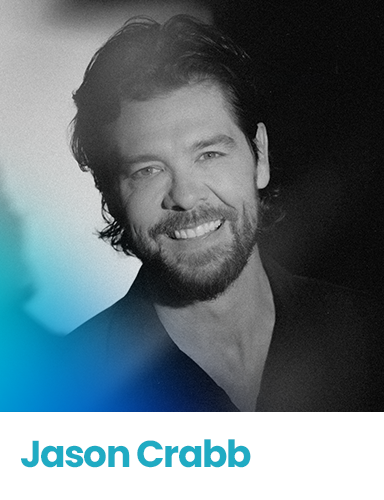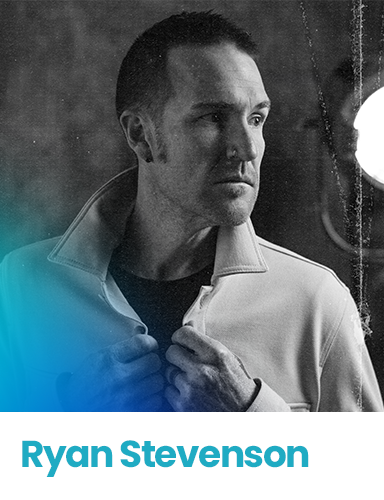
7 AI Trends Shaping the Future of Christian Radio
Something very interesting happened to me—and to Christian radio—in the recent past.
I was working in the secular AI world, providing AI training for industries that had nothing to do with ministry. Then, out of nowhere, someone introduced me to Christian radio. Who knew? God was opening a massive door.
Likewise, in the last few years, many radio executives began hearing whispers about Artificial Intelligence. Then those whispers became conversations. Now AI is everywhere you turn.
And if there’s one thing I’ve learned, it’s this: God has His own way of orchestrating events. He connects people, ideas, and opportunities for His purposes.
Let’s be certain about this, I’m not the only “AI expert” now in Christian media—there are more voices popping up every month. But I am the only one training AI Digital Evangelists. Through my AIDE certification program, your team learns how to use AI not just for efficiency, but to become more effective witnesses for Christ. Because in Christian radio, every single person—whether on-air, in sales, or in engineering—is first and foremost an evangelist. I realize this sounds like a shameful plug for my business, but it’s not. Every single person who works at a Christian Radio station, is an evangelist.
Let me explain: When that 28-year-old single mother, at the end of her rope is driving down the road, and she happens to tune into your station and hears that perfect song lyric or teaching that speaks to her heart, well, every person at the station played a role in some small way to get the song or message on the airwaves. That is evangelism. So, whether you get AI training from me or someone else, your reason for doing so should be to become more effective at evangelizing. Afterall, that is what Christian Radio really is all about.
I’m not here to tell you whether AI is good or bad. AI is a tool. Like a microphone or a transmitter, its moral value depends entirely on how it’s used.
But here’s what I do want to tell you: just like the sons of Issachar, we must “understand the times” (1 Chronicles 12:32, NASB) so we’ll know what to do. AI is changing the landscape of media faster than anything we’ve ever seen. By understanding its emerging trends, we can steward these tools to amplify the Gospel, build deeper listener relationships, and advance the Great Commission.
Here are seven AI trends every Christian radio leader needs to understand:
- Agentic AI: The Proactive Digital Teammate
AI that doesn’t just respond—it acts. Imagine assigning an AI the task: “Coordinate an interview with author Jane Smith.” It finds her contact, drafts the email, schedules the slot, and confirms the recording—all without you touching the keyboard. In ministry, this could streamline donor follow-ups, guest bookings, or prayer event coordination. - Inference Time Computing: The Speed of Ministry
Low “inference time” means AI delivers answers instantly. That speed can enable real-time translation of a live sermon, instantaneous Q&A during a broadcast, or up-to-the-minute listener sentiment tracking—perfect for live pledge drives or event coverage. - Very Large Models (VLMs): The Power of Scale
These massive AI systems can generate devotional content, brainstorm show topics or create first-draft promotional copy. But remember—human theological oversight is essential to keep content biblically sound. - Very Small Models: Powerful Ministry in Your Pocket
Ultra-efficient AI that runs offline on a phone or car dashboard. Your station’s app could offer personalized devotionals, interactive prayer guides, or curated music playlists that work anywhere—no internet required. - Near-Infinite Memory: Building a Relationship
New AI can remember past listener interactions indefinitely. A prayer request from last month? The AI recalls it, follows up, and offers new encouragement. This transforms casual encounters into long-term discipleship connections. - Human-in-the-Loop (HITL) Augmentation: Partnership, Not Replacement
In Christian radio, wisdom and discernment must remain central. HITL ensures AI drafts, organizes, and suggests—but humans make the final calls, keeping content aligned with Scripture and your mission. - More Advanced Uses: The Integrated Future
Now imagine all these trends working together. An Agentic AI creates a devotional series with a VLM, personalizes it for each listener through a Very Small Model, remembers their progress with Near-Infinite Memory, and flags pastoral follow-ups through HITL—instantly powered by fast inference computing. That’s scalable, personal ministry at a depth we’ve never seen before.
Why This Matters Spiritually
At Christian Media AI, we work under a clear biblical and ethical framework. AI is never a substitute for the Holy Spirit, pastoral guidance, or the Word of God. Instead, it’s a servant—one that, if used wisely, can help us fulfill Matthew 28:18–20 by reaching more people, more personally, more effectively.
Technology doesn’t change the Gospel. But it can change how far and how fast the Gospel travels. As leaders in Christian radio, our mandate is to discern the times, understand the tools, and use every one of them to “proclaim Him, admonishing every person and teaching every person with all wisdom” (Colossians 1:28, NASB).
AI isn’t coming. It’s here. The question is—will Christian radio lead with wisdom, or follow in fear?
At the end of the day, Christian radio is not in the technology business—you are in the life-change business. AI is not about turning your team into tech wizards or chasing the latest digital fad. It’s about equipping every person in your organization to do what God has called them to do—share the Gospel with greater reach, clarity, and compassion. When AI becomes the silent partner that handles the heavy lifting, your people are freed to focus on relationships, discipleship, and proclaiming the hope of Jesus Christ. The goal is not to master the machine, but to master the mission—using every tool at our disposal so that more people, in more places, hear the Good News and are transformed for eternity.






















































































































